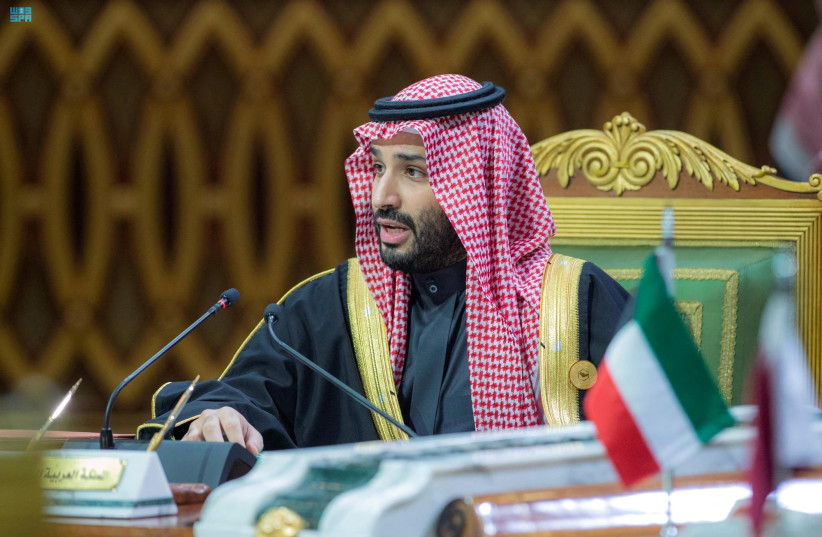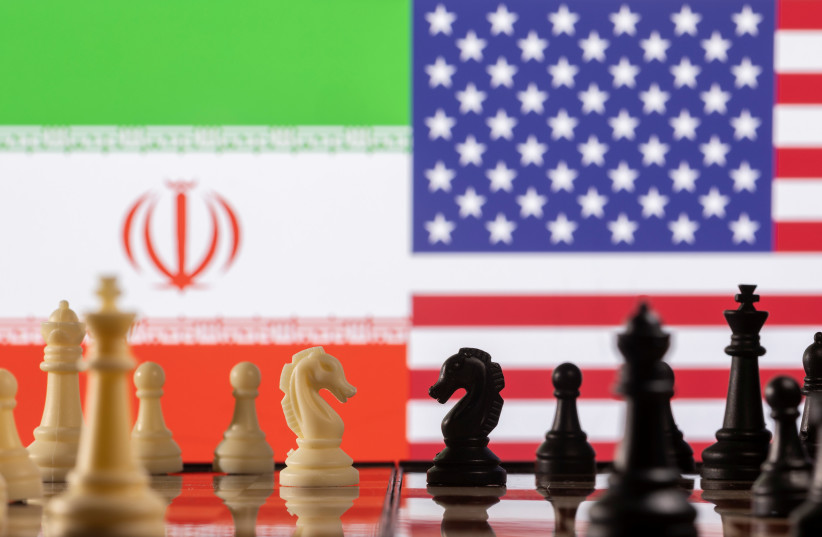The US leaving the Middle East leads Riyadh to explore its options.

Iranian and Saudi representatives met once again in Baghdad for the fifth round of talks toward normalization, it was announced over the weekend.
Iranian foreign ministry spokesman Saeed Khatibzadeh on Monday described the recent talks as positive. It was not immediately clear when they took place. The fourth round was held in September.
Saudi Arabia and Iran have been regional rivals ever since the ayatollahs came to power in the Islamic Revolution of 1979 and Tehran transformed from being an ally of Israel to seeking its destruction.
The United States has been very active in the region over the last decades. However, the administration of President Joe Biden has taken many actions showing that it intends to reduce the US role in the Middle East, leading to a shift in the geopolitical dynamics of the region.
Uzi Rabi, director of the Dayan Center for Middle Eastern and African Studies at Tel Aviv University, told The Media Line that the meeting had to do with the “less penetrating American rule.”
Brig.-Gen. (res.) Yossi Kuperwasser, director of the Project on Regional Middle East Developments at the Jerusalem Center for Public Affairs, agrees.
The Saudis are very concerned because they see the United States leaving the Middle East and decreasing its presence in the region, Kuperwasser told The Media Line.
“They see the American eagerness to resume the Iranian nuclear deal, and that tells them that they have to look for other friends,” he said.

The experts believe that these Saudi-Iranian meetings mostly have to do with the situation in Yemen, at least for Riyadh.
Rabi explained that the Saudis find themselves in a very complicated position in Yemen and that they are looking for an alternative to their current heavy involvement in the civil war there.
“The Saudis have been defeated in Yemen and they would like to get a compromise to make up for their losses and create a situation in Yemen where the Houthis [who are supported by Iran], don’t become too strong,” he said.
“Basically, what we can see here is a Saudi attempt to get Iran to compromise on the Yemen issue,” Rabi said.
Kuperwasser adds, “Saudi Arabia is worried about Iran having influence over Yemen, and that is the major incentive for the Saudis to meet the Iranians since they can control the Houthis and they [the Saudis] want to make sure that they won’t start firing [more] missiles at them.”
As for Israel and the other Abraham Accords countries that are also Iranian rivals, Rabi believes that Saudi Arabia has coordinated the talks with Iran with them.
The Abraham Accords’ Arab signatories, he continued, “are well in the picture, and some of them would even like to see sort of an alignment in Yemen because it is becoming a very bothersome issue and it has opened the door for Iran to get a stronghold on the southeastern flank of the Arabian Peninsula, which is not comfortable for anyone.”
Kuperwasser, on the other hand, is not so sanguine regarding the status of Israel in this issue.
“We are concerned about this because the Iranians may get only gestures and smiles from the Saudis, which will do nothing to bring stability to the Middle East,” he said.
If Saudi-Iranian relations continue to improve, that could endanger the Abraham Accords further down the road, and “that is something that Israel is concerned about,” he said.
Kuperwasser added, however, that many of the issues discussed in Baghdad had nothing directly to do with Israel.
The experts agree that Saudi Arabia is aiming to extricate itself from the morass in Yemen, but they are not sure the Iranians have the same reason for meeting.
“What Iran is trying to do is to weaken the more pragmatic and moderate states in the Arab world and take advantage of the fact that they have strained relations with the US at this point,” Kuperwasser said.
While Seyyed Javad Mousavi zare, an Iranian with a doctorate in political geography and geopolitics, agrees that one of the main issues is the situation in Yemen, he described other possible reasons Tehran may be meeting with the Saudis.
The first one, he said, has to do with religious tourism. It is in Tehran’s interest to succeed in sending Iranian pilgrims on Hajj to Mecca, but even more so to reactivate Shiite tourism from the Gulf to Iran, given the Islamic Republic’s ailing economy.
“The tomb of our eighth Shiite imam [Ali al-Ridha] is located in the city of Mashhad. As a result, many Shiites from the Persian Gulf countries, especially Kuwait, Bahrain, and Saudi Arabia, travel to this city for pilgrimage. Of course, after the severance of relations between the two countries, these trips have also been canceled,” Mousavi zare said.
For this reason, he continued, “the normalization of relations between the two countries in terms of tourism, especially in a situation where Iran is not in a good economic position,” would do a lot to help the country’s economy, he said.
The Iranian regime is also trying to improve its standing among the country’s citizens, he continued.
Iranian soccer clubs, including Persepolis FC and Esteghlal FC, both based in Tehran, are among the most popular in Asia, Mousavi zare explained. And the severance of ties with Saudi Arabia has led to an increase in the latter’s influence in the Asian Football Confederation, depriving the Iranian clubs of the right to host international matches.
“This has led many football fans in Iran to oppose the government. Therefore, the development of relations between the two countries leading to … Iranian football clubs hosting Saudi football clubs would have some positive repercussions for the Iranian government,” he said.
Mousavi zare added that it is in Iran’s interest to come to an agreement with Saudi Arabia concerning the proxy wars they are engaged in throughout the region, due to their high cost.
Iran and Saudi Arabia are currently competing on several fronts, he said, “including Yemen, Lebanon, Iraq, Syria. The normalization of relations would lead to a reduction in the cost of physical warfare.”
Lastly, he said Iran wants to improve its relations with the countries of the Islamic world, especially Kuwait, and increase coordination with Saudi Arabia regarding OPEC decisions on oil exports.
Content retrieved from: https://www.jpost.com/middle-east/article-705303.